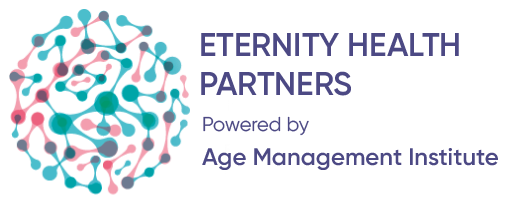Female Hormone Replacement Therapy
Eternity Health Partners offers a variety of Bio-Identical Hormone Replacement Therapies specifically for females.
Declining Hormones?
Does your mind say yes when your body says no?
As women get into their late 30’s and 40’s, their hormone levels begin to change similar to men. At Eternity Health Partners, we know that you may be suffering from hormone deficiency or female hormone imbalance. Hormones play a crucial role in the functioning of your body. Their levels and balance are extremely important to your health, mood, and well-being.
As a woman ages, her body becomes less effective in producing these vital hormones. Hormones fall to unhealthy levels creating a hormone imbalance in your body. Menopause, adrenal fatigue, and other hormone syndromes are all characterized and caused by improper hormone levels. Female hormones must stay in perfect hormonal balance in order for your body to function optimally.
Do you suffer from any of the following Deficiencies?
Vaginal Dryness
Loss of Bone Density
Joint Pain
Low Stamina
Fatigue
Irratibality
Depression
Weight Gain
Poor Memory
Inability to Focus
Low Levels of Immunity
Lack of Skin Elasticity
Hot Flashes
Night Sweats
Mood Swings
Low Sex Drive
Historically, these symptoms were regarded as normal signs of aging and were considered inevitable and untreatable. However, the latest research has revealed that it is really the improper levels of female hormones that are responsible for many of these ailments.
This understanding of the importance and function of the female hormone balance and harmony has led to the development of modern Bio-Identical Hormone Replacement Therapy for Women.
Restore Hormone Balance with BHRT
Bio-Identical Hormone Replacement Therapy for Women (BHRT) uses hormones that are identical, on a molecular level, to the natural hormones occurring in your body. The goal of BHRT is to supplement low hormone levels and to restore the critical hormone balance in your system.
By restoring hormones to appropriate levels, BHRT can help eliminate many symptoms associated with menopause, adrenal fatigue, and other hormonal imbalances.
BENEFITS OF BHRT FOR WOMEN
Those suffering from hormone imbalance can greatly benefit from bio-identical hormone replacement therapy. BHRT can help women:
Improved Strength and Energy
Enhanced Mood
Restore Sex Drive
Boost Memory
Increase Stamina
Regain Skin Elasticity
Strengthen Immune System
Reduce Depression
Decrease Joint Pain
Decrease Hot Flashes
Alleviate Hot Flashes
Stop Vaginal Dryness
Optimize Your Hormones
Clearing The Air On Hormone Replacement Therapy
Based on the information provided, hormone replacement therapy (HRT) is the most effective treatment for relieving menopausal symptoms. The debate surrounding HRT lies in whether it raises the risk of certain chronic diseases, such as breast cancer, dementia, and cardiovascular disease.
Regarding breast cancer, the Women's Health Initiative (WHI) reported a slightly increased incidence of breast cancer in women taking conjugated equine estrogen (CEE) plus medroxyprogesterone acetate (MPA) compared to the placebo group. However, the increased risk was not observed in women who had not used hormone therapy prior to the study. It is suggested that MPA, and not estrogen, may be responsible for the elevated risk. It is important to note that the WHI data on breast cancer is based on older HRT formulations, and the effects of newer formulations on breast cancer risk are still unknown.
HRT has a positive impact on bone health. Estrogen is essential for maintaining bone density, and HRT prevents the loss of bone mineral density associated with menopause. However, once HRT is stopped, the protective effects on bone density diminish. Nonetheless, delaying bone loss through HRT can provide a longer window to maintain healthy bone mass and delay the onset of osteoporosis.
The impact of HRT on the risk of dementia is influenced by the age at which HRT is initiated. The WHI reported higher rates of probable dementia in women who started HRT late in life compared to those who had never used HRT. However, when HRT was initiated in mid-life, it was associated with a reduced risk of dementia. Initiating HRT early, within the first 10 years of menopause, does not increase the risk of dementia.
The effects of HRT on cardiovascular disease (CVD) are still a topic of debate. Epidemiological studies have suggested a potential reduction in CVD risk with HRT, but the WHI did not show a significant decrease or increase in CVD mortality. Similar to other outcomes, initiating HRT within 10 years of menopause may be associated with a reduced risk of coronary disease.
In conclusion, the decision to initiate or continue HRT depends on a risk-benefit analysis considering factors such as menopausal symptom severity, family history, and personal preferences. HRT is effective in relieving menopausal symptoms and maintaining bone density. The risks and benefits associated with HRT for breast cancer, dementia, and cardiovascular disease may vary depending on the individual and the timing of HRT initiation. It is essential to consult with a healthcare professional to make informed decisions about HRT.




